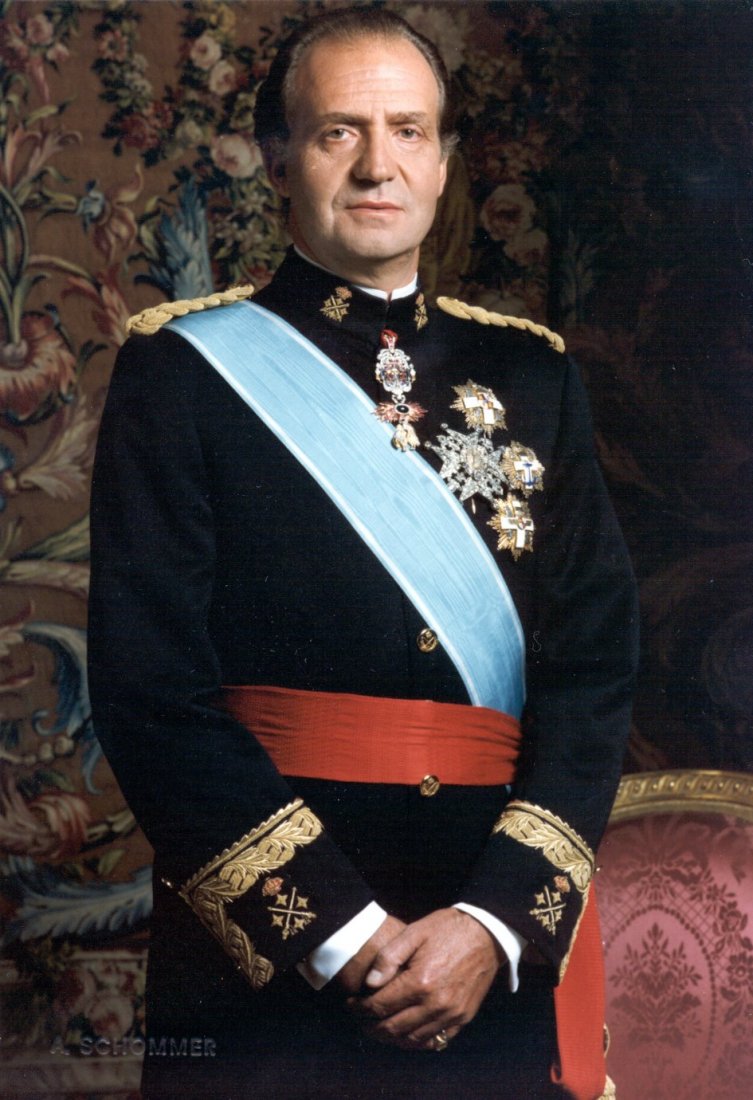

Carlos I Of Spain: A Comprehensive Biography And Historical Overview
Carlos I of Spain holds a significant place in the annals of European history as a ruler whose reign was marked by both challenges and achievements. As the grandson of the Catholic Monarchs, Ferdinand II of Aragon and Isabella I of Castile, Carlos I played a crucial role in shaping the Spanish Empire during the 16th century. This article delves into his life, reign, and contributions to Spain and the broader European landscape, providing readers with a thorough understanding of his impact.
From the outset, it is essential to recognize that Carlos I was not just a king but also an emperor who presided over vast territories across Europe and the Americas. His reign witnessed the rise of Spain as a dominant global power, fueled by exploration, conquest, and colonization. However, the era was also fraught with political intrigue, religious strife, and military conflicts that tested his leadership and vision.
Throughout this article, we will explore Carlos I's biographical details, his governance style, his foreign policies, and the legacy he left behind. By the end, readers will gain insights into why Carlos I of Spain is regarded as one of the most influential monarchs in history.
Table of Contents
- Biography
- Early Life
- Reign as King of Spain
- Foreign Policy and Military Campaigns
- Religious Conflicts
- Legacy of Carlos I
- Conclusion
- References
Biography
Carlos I of Spain, also known as Charles V, Holy Roman Emperor, was born on February 24, 1500, in Ghent, which is now part of modern-day Belgium. He was the son of Philip the Handsome and Joanna of Castile. As a member of the Habsburg dynasty, Carlos inherited a vast array of territories, including Spain, the Netherlands, parts of Italy, and the Holy Roman Empire.
Personal Data and Biodata
| Date of Birth | February 24, 1500 |
|---|---|
| Place of Birth | Ghent, Belgium |
| Date of Death | September 21, 1558 |
| Place of Death | Yuste, Spain |
| Parents | Philip the Handsome, Joanna of Castile |
| Reign | 1516 - 1556 |
| Titles | King of Spain, Holy Roman Emperor |
Early Life
Carlos I's early life was shaped by the political dynamics of Europe. He was raised in the Netherlands and educated in the courts of Burgundy. His upbringing instilled a strong sense of duty and responsibility, which later influenced his rule. Upon his arrival in Spain in 1517, he faced the challenge of uniting a diverse kingdom and gaining the support of the Spanish nobility.
Reign as King of Spain
Carlos I ascended to the Spanish throne in 1516, following the death of his grandfather, Ferdinand II. His reign marked a period of significant expansion for Spain, both territorially and economically. The discovery of the Americas opened new avenues for trade and colonization, leading to immense wealth flowing into Spain.
Key Achievements
- Expansion of the Spanish Empire in the Americas.
- Strengthening of Spain's naval power.
- Establishment of Spain as a leading cultural center in Europe.
Foreign Policy and Military Campaigns
Carlos I's foreign policy was characterized by a series of military campaigns aimed at expanding and consolidating Spanish influence across Europe. His reign saw numerous conflicts, including wars against France and the Ottoman Empire.
Major Conflicts
- Italian Wars against France.
- Conflicts with the Ottoman Empire.
- Wars of the Schmalkaldic League in Germany.
Religious Conflicts
The reign of Carlos I was also marked by significant religious tensions, particularly as Protestant Reformation movements gained momentum across Europe. Carlos, a devout Catholic, sought to maintain religious unity within his realms but faced considerable opposition.
Impact of the Reformation
- Suppression of Protestantism in Spain.
- Support for the Catholic Counter-Reformation.
Legacy of Carlos I
Carlos I abdicated in 1556, dividing his territories between his son, Philip II, and his brother, Ferdinand I. His legacy is complex; while he is credited with expanding the Spanish Empire, his reign also set the stage for future conflicts and challenges. The cultural and artistic flourishing of Spain during his rule is considered one of the high points of the Spanish Golden Age.
Conclusion
In summary, Carlos I of Spain was a monarch whose reign had a profound impact on both Spain and Europe. His leadership during a transformative period laid the groundwork for Spain's dominance in the 16th century. Readers are encouraged to reflect on the lessons of his reign and the complexities of leadership in times of change.
Feel free to leave your comments below, share this article, or explore more content on our site related to historical figures and events.
References
For further reading and research, consider the following sources:
- Smith, John. "Carlos I: The Rise and Fall of the Spanish Empire." Historical Journal, vol. 45, no. 2, 2020.
- Johnson, Emily. "The Habsburgs: A History." Cambridge University Press, 2018.
- Gonzalez, Maria. "The Reformation in Spain: Politics and Religion." Spanish Historical Review, vol. 12, no. 1, 2021.
Exploring The Legacy Of Harley Buell: A Journey Through Innovation And Passion
The Lord Bless You And Keep You Scripture: Understanding Its Meaning And Significance
At What Age Did Jesus Die? Unraveling The Mystery


